A Closer Look at our Business
When we look at the various divisions within CODE, things can quickly look overwhelming, but it really isn’t. Everything CODE does revolves around helping companies build better software. We have the following divisions and brands, all of which have their areas on our website (codemag.com), which we encourage you to become acquainted with in detail.
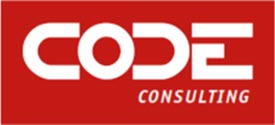
CODE Consulting is the consulting arm of EPS Software Corp. and our primary revenue stream. Our primary focus is building custom software applications on any scale, from small consultations, to custom software projects that last for years and involve teams of people. We provide software development, mentoring, project management and architectural expertise. We use a variety of tools and technologies such as .NET, iOS, Android, web, mobile, cloud, services, various databases, and more. We help our clients build applications better and faster, and help them improve quality, maintainability and reduce their time to market, reducing the risks that are inherent in every software development project.
- We maintain a core group of about 15-25 people
- We have an extended group of key experts to draw from
- We do projects ranging from just a few hours of mentoring to multi-year, multi-million-dollar projects with a dozen developers or more
- We often end up managing a customer’s team members as well
- Our projects often include direct client engagement on legacy, existing or new applications
- We rely on repeat and referral business
- We work in all vertical markets including oil and gas, finance, healthcare, etc.

As Markus always likes to tell our customers: “We are big enough to handle large projects, but small enough for every project to matter.”
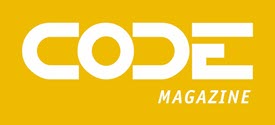
CODE Magazine is… well… our magazine. 😄
You probably already knew that. You probably already knew that we aim to provide in-depth content in an independent fashion. We are one of a few, if not the only, magazine in our niche of the software industry that is independent and is still published as a print publication. Of course, our digital formats are important to us as well, but we do not intend to stop the print version. Quite the contrary! Print has gone up in significance in recent times.
Think of it this way: How many magazines have you seen go “online only” and now they are a blog at best, or have disappeared entirely? Quite a few. We want to produce a print publication because it means you have a “real magazine.” Besides, many readers like having a printed version of a magazine, and there simply aren’t too many alternatives left. This doesn’t mean the digital format isn’t important; it simply means we will push both.
Magazines aren’t money-makers of course, and CODE no exception. CODE Magazine is financed out of our marketing budget. However, while we do see the overall magazine effort as a marketing initiative, the content of the magazine is NOT driven by marketing. We do not publish content that talks about how great our company is; instead, we focus 100% on producing great content people want to read. Having a magazine with great content that people like serves us far better in gaining status and respectability than any kind of marketing ever would.
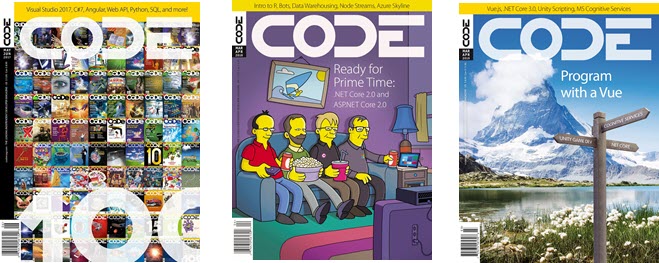
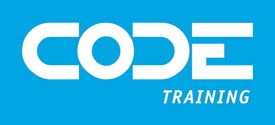
We have a long history in training. We have done training events of various sizes, ranging from individual training and mentoring, all the way up to small conferences. More recently, we have focused on just a few kinds of specific training events:
- Classroom style training (online and on-site) of our own products, such as CODE Framework. This is usually free of charge.
- Classroom style training for standard technologies such as WPF, ASP.NET MVC, or VFP Conversion. Normally this is multi-day classes that the customer pays for.
- Lecture style events at various locations (often at Microsoft offices) that are normally half-day. Our State of .NET Events are the prime example of this. These events are free.
- “Day of” lectures. These are day-long training sessions with beefy content held at various locations, often at Microsoft offices. Examples of this are “A Day of ASP.NET MVC”, “A Day of Cloud/Azure”, “A Day of Angular”, and so on. These events are usually free of charge.
As you can see, most of our training events are free of charge. While in the past, training used to be a revenue stream for us, it has now turned into mostly a marketing effort. That could change at any point because training can be good revenue that leads to more consulting work. It is an important aspect of our business.
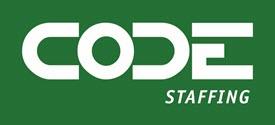
CODE Staffing is our strategic staffing and staff augmentation effort. It is an important part of our business that we expect to grow quite a bit in the future. In fact, you may be reading this book as part of the CODE Staffing effort.
The main difference between our approach and what “conventional” staffing companies do is that we use the power of the CODE ohana to back up our staffing efforts. Customers do not just get a “warm body” but they work with someone who can always reach out to our overall network to get questions answered and problems solved. Thus, our customers not only get access to the consultant whom they work directly with, but also to our entire network with all our contacts.
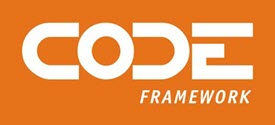
CODE Framework is our framework product that helps developers more efficiently build advanced business applications. The framework is perhaps the most well-known for its features for Windows Desktop applications, but the web and services are other key components as well.
CODE Framework is open source and free of charge. However, CODE Framework is still very important for our business, since some of the CODE Framework users become consulting customers.
All CODE ohana developers should be familiar with CODE framework. For more information, check out https://codeframework.io/. Also, make sure you check out our training materials and hands-on labs, as well as live and recorded training sessions.
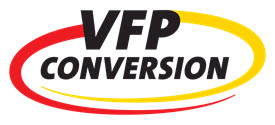
Legacy conversion projects, and especially conversions from former Visual FoxPro projects, have been, and will continue to be, an important part of our business. Most people are surprised by how many legacy projects are still running in production and in dire need of being replaced.
